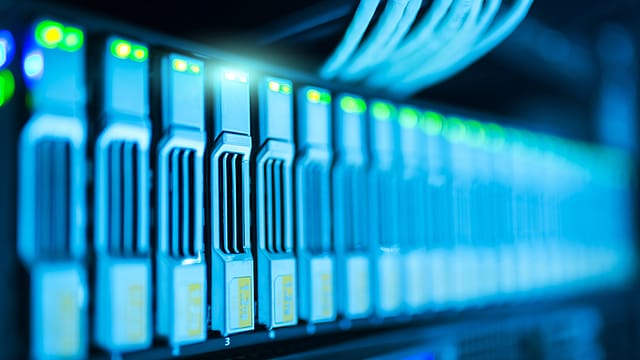Is India ready for the big tech leap?
ADVERTISEMENT

In the last few years, there has been considerable progress in the Internet of Things (IoT) ecosystem. IoT is the interconnection via the Internet of computing devices embedded in everyday objects, enabling them to send and receive data. Though the underlying machine-to-machine (M2M) communication technologies existed earlier in various forms, the technological ecosystem for the modern IoT stack—from sensors, gateways, connectivity networks, and platforms to applications and the data analytics layer—is much more evolved and modularised now, with proven solutions at each layer. The use cases for IoT across various industry domains are also well analysed and documented, and enterprises today have the enabling ecosystem to conceptualise and implement IoT solutions for improving their business outcomes.
Broadly, the IoT market can be categorised in three segments: Industrial, Consumer, and Services/Public Sector. In the global context, Industrial IoT is expected to drive a majority of the IoT investments, with roughly 50% share of the total IoT spending. Capital-intensive industries view IoT as an important lever to improve operational efficiencies, and hence the IoT investments are typically around use cases in asset optimisations and predictive maintenance, among others. Industrial IoT, combined with advanced analytics and machine learning, promises to reduce unplanned downtime, increase production speeds, optimise supply chains, reduce product defects, and improve overall efficiencies and effectiveness in the operations.
In the Indian market too, IoT investments in next few years is expected to be led by organisations in the infrastructure domain, such as industrial manufacturing, logistics, agriculture, and government initiatives, such as Smart Cities. While major policy initiatives such as Make in India and Smart Cities provided the impetus for building localised IoT solutions at scale, contemporaneous advancements in broadband network infrastructure and the declining cost of hardware and connectivity enabled the ecosystem to bring scalable solutions to the market in a cost effective manner.
The number of IoT devices in India is expected to reach 1.9 billion in 2020, and the revenue opportunity is expected to be around $9 billion by that year. Industry initiatives, such as the Center of Excellence for IoT by Nasscom and the government, is also developing the startup and talent ecosystem to assist home grown startups in this domain. By various estimates, the Indian IoT ecosystem has more than 100 companies, 60% to 65% being startups. While the opportunity is spread across the entire IoT stack across sensors, gateways, connectivity networks, platforms, applications, and machine data analytics, the application layer is witnessing much of the action, with domain specific solutions being built on standardised platforms.
The supplier ecosystem in India is also evolving in tandem, with original equipment manufacturers (OEMs) and service providers building end-to-end solutions for domain-specific use cases, often in partnership with each other. Indian technology services vendors are also in the forefront of leading IoT implementations in the global market, and for large technology services vendors, IoT is a key component of their digital service offerings. They are making steady inroads in domains such as IoT Consulting, System Integration, and Managed IoT services across the enterprise markets.
Investments in technology frameworks and solution accelerators, along with the expertise in building domain specific applications, will help Indian IT service majors create a niche in this evolving market. Strategic alliances and partnerships among product OEMs, consultants, and IT system integrators are also driving the adoption of IoT applications, as the collective experience and expertise in providing domain specific solutions help enterprises realise the benefits faster.
As much promise the technology holds, and the ecosystem able to support, realising the benefits of IoT in the Indian market, would hinge on the flexibility of business models, and their ability to provide cost effective solutions, especially in the context of Micro, Small and Medium Enterprises (MSMEs). MSMEs contribute more than 30% of India’s manufacturing output, cater to more than 45% of overall exports, and provide employment for 120 million people. As engines of economic growth and job creation, their significance in the Indian economy could not be understated. Technology investments for the majority of MSMEs are strictly RoI driven, and benefits have to be realised quickly, for the technology to get validation, and also sustained investments.
The ability of the IoT industry to provide flexible business models, along with support for on demand provisioning and fulfillment of hardware, platform, services, and data analytics to enable IoT solutions would be the key factor to drive mass adoption of IoT in the Indian market. Barring which, the technology would largely be restricted to large enterprises in the respective industries, without enabling value chain efficiencies across the board. Our industry initiatives and policy support should be focussed on discovering and supporting such cost effective and sustainable business models, which will help us improve overall efficiencies and productivity across value chains, thereby realising the true potential of IoT.
IoT is becoming an integral part of enterprise digital strategy. In the long term, the maximum benefits of IoT will accrue to economies that utilise it as an integrated tool for maximising value chain efficiencies, connecting digital and physical systems in a closed feedback loop, with digital layer generating insights and driving contextual decisions for the physical systems. The ecosystem in India is much more evolved now than it was a few years ago, with talent, technology platforms, connectivity infrastructure, and the application expertise coming together for bringing localised solutions at scale. The collective efforts of the industry and the policy establishment should be focussed on discovering and supporting cost effective business models, which will accelerate the adoption of IoT, and help us realise its true potential.
( Views expressed are personal. )
The author is partner, Deloitte India .